When Paragon was shut down by Epic in April 2018 I’ll admit I was gutted. I was never a fan of MOBAs despite Tim here at PC Invasion trying to get me over to Dota 2. Paragon was different. It offered something quite special with its excellent character design, visuals, verticality, and enthralling gameplay.
Paragon’s development was troubling for Epic and they never quite knew which direction to take it. Well — they lost direction when Epic’s Steve Superville left the company. He was on the right track and then it was all changed for the worse. Smaller map; quicker games which nobody wanted; characters not being tweaked for balance. It was all a bit of a mess.
Fortnite Killed Paragon
Then came Fortnite, Epic’s cash-cow which they happened upon by making a battle royale mode for the floundering PvE game. Paragon team members were pulled off the project to help with the huge influx of Fortnite players, and the rest is history. As was Paragon.
For Paragon players like myself, it was tough to see the game being shelved. It showed so much potential but alas Epic had lost their way.
Epic did realise there was a passionate community playing the game, even if it wasn’t anywhere near the numbers Fortnite was pulling in, and they did eventually release the game’s assets to the community and offer refunds to those who had spent real money on the game. The release of the assets was a big deal for the fans because it has now spawned development teams working on a new version of the game.
The Paragon-Like Future
There are currently two new Paragon games in the works: CORE from a development team called Metabuff and Predecessor from developer Omeda Studios. These two different Paragon remake projects are the best hope for fans of the original MOBA who are hoping that the early Legacy version of the game — the one before Epic moved the game in what could be considered the wrong direction — is brought back to life. It’s worth pointing out that neither game is a direct copy of the original Paragon. Each team has their own take on the Paragon formula.
These two projects are now either in or about to enter testing, so fans are starting to keep a close eye on each as development progresses. But reviving a game that fans loved is no easy task, so why go to all the trouble?
“When Paragon closed last year, I observed the reaction of the community (including myself) and witnessed a LOT of disappointment and grief,” said SergeantSmokie, heading Omeda Studios’ Predecessor. “People truly loved the game. I had been programming for 15 years so I had experience on a personal and professional level to start a game project that would soon evolve into what you know today as Predecessor.”
Metabuff’s Nick Opolis who is heading the CORE team shares similar sentiments following the demise of Paragon:
“Well, we can’t bring “Paragon” back exactly – what we’re doing is technically inspired by it. We loved this game and it made us sad that we lost it. We’re hoping to bring that feeling back in some form. We hope CORE can do that and return it back to the fans.”
Nick is right. Paragon can’t just be flatly resurrected, and it would be the wrong decision to simply bring it back as it was. When it shut down in April 2018, it was still flawed. So, both development teams are looking to add their own twist to the concept of Paragon.
“We’ve had a great resource with the community and the people we’ve been fortunate enough to meet and work with,” continued Opolis. “Identifying the nostalgia is tricky where so many people have had different experiences with the previous title, so we’re trying to hone in on what the most common celebrated features are – while filling in the gaps with what we hope will improve the experience for players. Lots of research and working with the fans and competitive players. For players by players.”
“Paragon had distinct heroes, combat, game mechanics, immersion, and so much more,” added SergeantSmokie. “They’re big shoes to fill but we have very experienced Paragon players within our community that has helped shape Predecessor. Since the early stages of Predecessor we were doing development streams where the community would provide feedback. That has been essential in getting back that “feeling”. As you can imagine the community also plays loads of other MOBAs so now that we are at an opportune moment to shape the game how we see fit, we have drawn inspiration from proven concepts!”
Development Goes Full Steam Ahead
Both the CORE and Predecessor teams were relatively quick off the blocks starting work on their projects after the Paragon closure. Over the past few months we’ve seen more videos, and discussion has been ramping up in both projects’ Discord channels. There is still some way to go, though: even with testing going on, both teams are still some way off from a full-fledged beta test.
“We’re not at alpha stage yet but hope to be soon. We had to hit reset on some stuff in order to build things better than we had it. We’re pleased to say things are going smooth but can’t comment on a timeline just yet,” said CORE’s Nick Opolis.
Similarly, Predecessor isn’t quite there, as SergeantSmokie confirms. “Beta is still a ways away. Closed alpha launched at the end of March and is an ongoing process until we can get the game to a stable playable experience for all. It’s been incredible to have testers get hands-on with Predecessor and provide feedback!”
Metabuff sh0ws its CORE progress.
Development of any game takes time and making a new Paragon-like experience has the added problem of trying to capture the mechanics that made the original game so good, while simultaneously attempting to offer something new. It’s not been easy building a team, developing a new game, and managing expectations.
“There haven’t exactly been any easy parts developing CORE,” mused Opolis. “The programmers have the most difficult task for sure. The Unreal Engine is as complex as it is powerful and impressive. Every aspect of the project has hard-working people with no easy or dismissable tasks. Fostering a good team and working with good people is a big thing.”
“The hardest part of development so far is managing the communities’ expectations. We are not Paragon, we are Predecessor,” clarified SergeantSmokie. “With a new game comes a brand new development process and because the majority of the community don’t have any game development insight it has been difficult explaining that we aren’t picking up where Paragon left off. Alpha will look like an alpha, etc…”
Omeda Studios shows its work on Predecessor.
Paragon’s Assets Were A Real Boost
Both teams were given a boost last year when Epic announced they were releasing the Paragon assets to the community for free. This was the first sign that maybe, just maybe, a team of real fans could bring the game back to life. This has saved both teams a lot time and helped push the projects forward, according to CORE’s Nick Opolis.
“The assets certainly helped motivate the idea of the project. They created the allure that it could be possible. We remember a lot of the early feedback held the perception that the map and character assets were plug-and-play and poof: you have the game ready to go. The assets are essentially like someone handing you paint and asking you to build a racecar from scratch with no parts or schematics. At least we know what it could look like. In the large scope of things, the assets do help, but they’re only a small piece in the overall project. We are of course extremely grateful to have them.”
SergeantSmokie agrees. “It would have been possible to start without them, but it has definitely fast-tracked the development process. We went from a non-existent game to a closed alpha in roughly 10 months.”
Having the assets has given a boost, but the teams involved are by no means huge. This does have an upside, according to Predecessor’s SergeantSmokie.
“Small teams are underestimated in game development. More people does not always equal more progress. We are working remotely, where half the team is across the world. Being a small team has ensured we can communicate each and every day; stay up to date on current workloads and deadlines.
“We can quickly make decisions and pivot our focus on essential components. Apart from those benefits, we aren’t currently generating revenue, but when the game does get to the point of being self-sustainable, we will be in a much better position to provide a long-lasting game as our overhead will be much less than that of a team 10 times our size. The trick is to carefully choose your team so all development areas are covered.”
Metabuffs’ Nick Opolis faces similar challenges. Keeping his team focused, engaged and not overworked is important to keeping CORE on track.
“A project this big with people dedicating their free time around their regular lives and responsibilities and commitments asks a lot from the team. Sometimes people’s priorities change and people leave or become able to join the project when they couldn’t before. Some assume the issue is keeping people dedicated but it’s the opposite. We have to tell people to go to sleep and take breaks and disconnect. There’s a lot of passion here. We don’t want anyone burning out, so we try to accommodate as much as possible. We also don’t ever want to create crunch scenarios.”
Going It Alone
When Epic shut Paragon down, it was an announcement that came out the blue and was quite a shock for players. Developers at Epic were shunted onto Fortnite. With Epic having dropped the Paragon ball, both the Predecessor and CORE teams appear to have had little contact with Epic about their new projects.
Predecessor’s SergeantSmokie says they have not had any contact with Epic. When asked, he said “We have not. We want to provide the community with a playable, enjoyable and growing game before reaching out to any third parties. “
Metabuff’s Nick Opolis wasn’t prepared to elaborate on any contact with Epic, simply stating: “Not in any way we’re allowed to discuss, I’m afraid.”
So what now for these two teams? What does the future hold and how are these start-ups planning for the future by supporting what will (hopefully) be growing communities? How will they support the games once they launch? These are questions that are being thought about carefully.
“Server costs are the primary concern by far. The community has been wonderful to us and we hope to grow it more by the time we’re ready for open beta. Ultimately, if enough fans and players support us when we need them to, we can keep the lights on,” said Nick Opolis.
Predecessor’s SergeantSmokie has also been thinking carefully about how they are going to monetise the game.
“Monetization will come into play in the next development phases, which will grant us the ability to self-sustain and keep growing. Our model will always reject pay-to-win methods though, so the monetization will be tied to cosmetic items and non-essentials.“
Where did Epic go wrong with Paragon?
Now that these two projects are well underway and as we reach the first anniversary of Paragon’s closure, both Nick and SergeantSmokie have reflected on where Epic might have gone wrong with Paragon.
“I enjoyed the game mechanics the most when it came to Paragon,“ pondered SergeantSmokie. “Teleporting, ulting, landing critical hits, feeling empowered, immersion, etc… It was really an addictive experience from start to finish. I think Epic made too many changes, too quickly.
“On top of that, when Paragon first started the power and unique gameplay of the heroes were the kits they had. Grux’s ‘Smash & Grab’, Narbash’s ‘Thunk’; the kits are what made heroes unique. Over the lifetime of Paragon it became a matter of what cards you had, and how they comboed together. Did you have Stagnant Dominion with The Fey or Redzone with Steel? The heroes became bland in comparison and the game felt less engaging in my opinion.“
Nick Opolis had slightly different thoughts. “Paragon was a great game and it was a lot of different things to a lot of people. A great aspect we enjoy is that it brought all of us together. We can’t judge Epic but we know a lot of smart people tried to make it make work. We think we can – so that’s why we’re trying to do. Just gamers making a game for gamers.”
When Epic moved from their Legacy map and changed a lot of the mechanics, the game essentially changed and it also caused a lot of debate within the community as to which version was best. The change didn’t exactly help Epic as a portion of their player base simply quit. It’s worth pointing out that Paragon had amassed 7.3 million registered accounts by July 2017 having only done a small amount of marketing for the game. By 2018 fans were wondering if Epic could save and fix Paragon. It was too late, Fortnite had happened.
Gone but never forgotten. The future could be bright
When Paragon closed in April 2018 it was a sad day for those who, like me, were playing every day of the week. As someone who generally doesn’t enjoy MOBAs, Paragon was clearly something special. It’s heartening to see two teams spawn from the community and attempt to bring back – and improve on – what will hopefully be an expanded third-person MOBA experience, with some of the amazing characters Epic created.
Both CORE and Predecessor appear to be vying for the same audience but, with any luck, we’ll see these two projects differentiate enough from each other to attract their own communities. There has been plenty of games in the past that have spawned slight variations on a formula and I know Paragon fans are waiting eagerly to see how each of these projects pan out. It’s definitely worth keeping an eye on both development teams very closely in the months ahead.
For more information on Core head to the Metabuff website. For more information on Predecessor head to the Omeda Studios website.

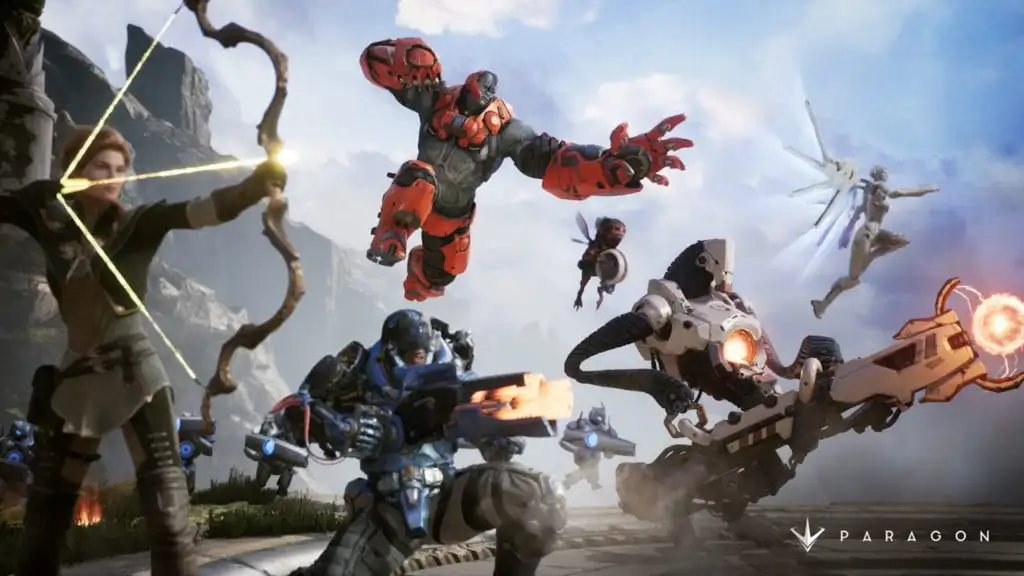
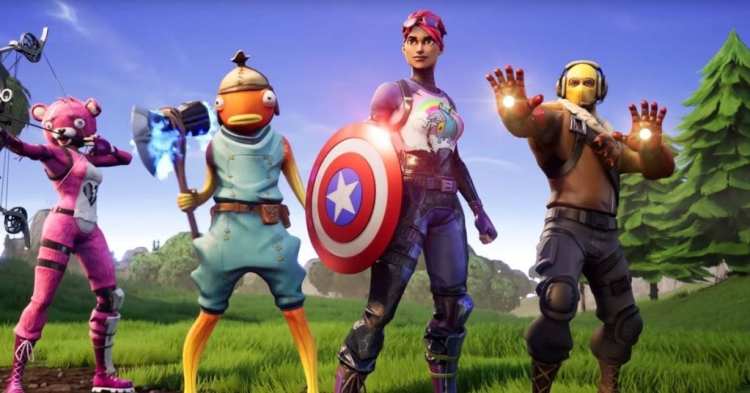
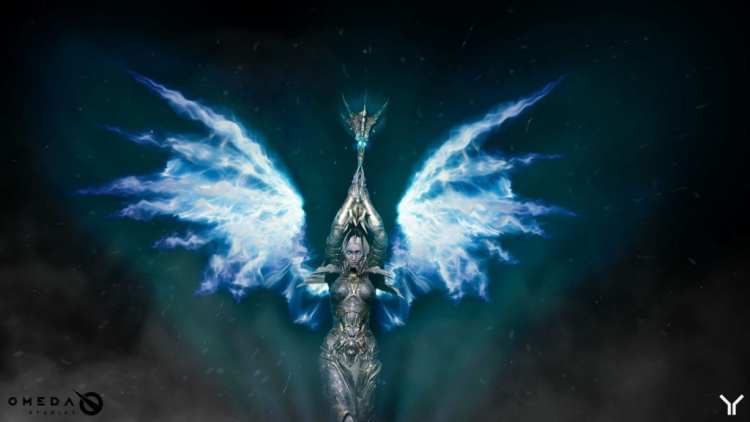
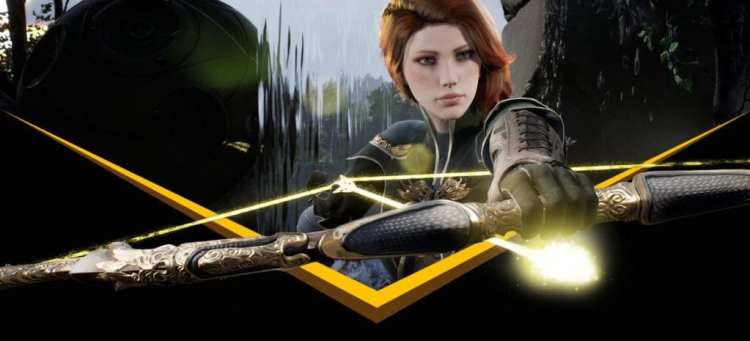

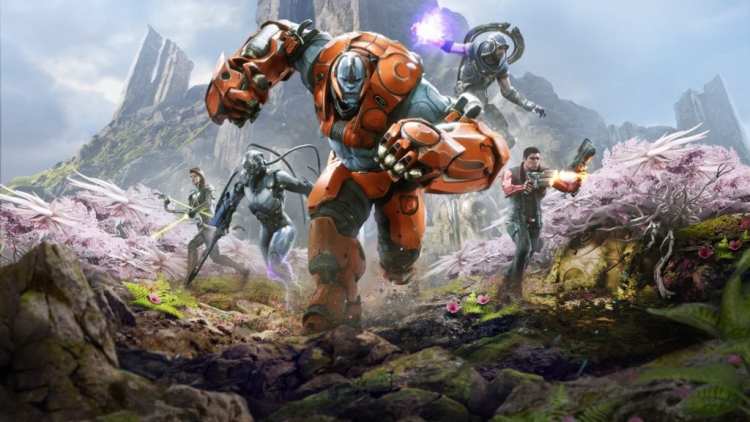





Published: Apr 26, 2019 01:03 pm